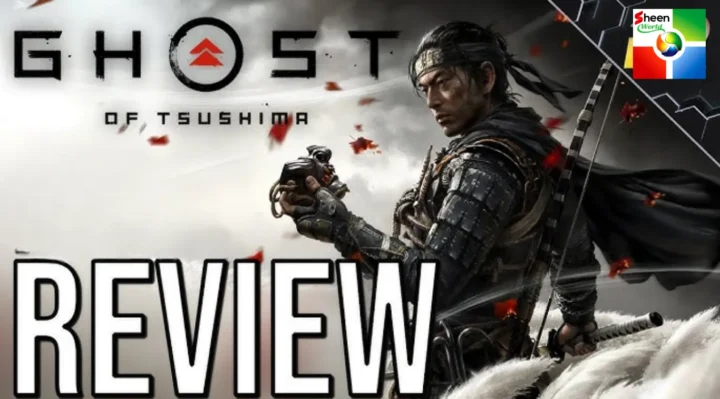At a Glance Ghost of Tsushima

Ghost of Tsushima, developed by Sucker Punch Productions and released in July 2020, has captured the hearts of gamers worldwide. With its stunning visuals, engaging narrative, and immersive gameplay, it stands as one of the most celebrated titles of its generation. In this comprehensive Ghost of Tsushima full review, we will explore the game’s story, mechanics, visuals, sound design, and its overall impact on the gaming landscape.
A Brief Overview of Ghost of Tsushima
Development and Release
Ghost of Tsushima was announced at Paris Games Week in 2017, generating excitement among fans of open-world games and Japanese culture. Sucker Punch, known for the Infamous series, took a bold step into a new genre, focusing on the samurai era of Japan. The game was released exclusively for PlayStation 4 and has since received acclaim for its attention to detail and storytelling.
Setting and Historical Context
Set during the Mongol invasion of Tsushima Island in 1274, the game presents a vivid portrayal of feudal Japan. Players assume the role of Jin Sakai, a samurai warrior tasked with defending his homeland against the Mongol forces led by Khotun Khan. The game seamlessly blends historical events with fictional elements, creating an immersive experience that resonates with players.
Storyline and Character Development
The Journey of Jin Sakai
The narrative of Ghost of Tsushima revolves around Jin’s transformation from a traditional samurai to the titular “Ghost,” a stealthy warrior who employs unconventional tactics to combat the Mongols. This character arc explores themes of honor, sacrifice, and the moral dilemmas faced by a samurai in times of crisis.
Supporting Characters
The game features a rich cast of supporting characters, each contributing to Jin’s journey. Key figures include:
- Yuna: A skilled thief who helps Jin adapt to his new fighting style.
- Lord Shimura: Jin’s uncle and mentor, who embodies the samurai code of honor.
- Khotun Khan: The main antagonist, a formidable leader whose ruthless tactics challenge Jin’s beliefs.
H2: Gameplay Mechanics
Combat System
Ghost of Tsushima offers a fluid and dynamic combat system, combining traditional samurai techniques with stealth mechanics. Players can engage in direct sword fights or opt for stealthy approaches, allowing for diverse gameplay styles.
Stances and Techniques
One of the standout features is the stance system. Jin can switch between different stances, each effective against specific enemy types. This adds a layer of strategy to combat, as players must adapt their approach based on the opponents they face.
Exploration and Open World
The game’s open world is a breathtaking rendition of Tsushima Island, filled with diverse landscapes, from lush forests to snowy mountains. Players are encouraged to explore, discovering hidden shrines, collectibles, and side quests that enrich the experience.
The Wind as a Guide
One unique aspect of exploration is the use of the wind as a guide. Instead of traditional markers, players follow gusts of wind to their objectives, enhancing immersion and creating a sense of tranquility.
Visuals and Art Design
Stunning Graphics
Ghost of Tsushima is renowned for its breathtaking visuals. The game employs a vibrant color palette and meticulous attention to detail, bringing the beauty of feudal Japan to life. From cherry blossom trees to expansive landscapes, each frame feels like a work of art.
Cinematic Presentation
The game’s cinematic presentation further enhances its storytelling. Dynamic camera angles and expertly choreographed cutscenes immerse players in the narrative, making them feel like active participants in Jin’s journey.
H2: Sound Design and Music
Immersive Soundscapes
Sound design plays a crucial role in Ghost of Tsushima. The ambient sounds of nature, from rustling leaves to flowing rivers, create an immersive atmosphere. Each sound effect is carefully crafted, enhancing the overall experience.
Musical Score
The musical score, composed by Ilan Eshkeri and Shigeru Umebayashi, complements the game’s emotional depth. The music shifts seamlessly between serene melodies and intense battle themes, enhancing the player’s connection to Jin’s journey.
Thematic Elements
Honor vs. Survival
One of the central themes of Ghost of Tsushima is the conflict between honor and survival. Jin grapples with the samurai code and the need to adopt unorthodox tactics to protect his people. This moral ambiguity drives the narrative and challenges players to consider their choices.
The Role of Nature
Nature plays a significant role in the game, symbolizing both beauty and danger. The relationship between Jin and the environment reflects the spiritual connection that samurai had with nature, emphasizing themes of harmony and balance.
Side Activities and Customization
Side Quests and Tales
Ghost of Tsushima is rich in side activities, offering players numerous quests that delve into the stories of the island’s inhabitants. These side tales not only provide valuable rewards but also enrich the overall narrative.
Character Customization
Players can customize Jin’s appearance and gear, allowing for a personalized experience. This includes different armor sets, each offering unique benefits and abilities, encouraging players to experiment with various play styles.
Reception and Impact
Critical Acclaim
Upon release, Ghost of Tsushima received widespread acclaim from critics and players alike. It was praised for its engaging storytelling, stunning visuals, and innovative gameplay mechanics. The game quickly became a bestseller, solidifying its place in gaming history.
Awards and Recognition
The game has garnered numerous awards, including several Game of the Year titles. Its impact on the industry is evident, inspiring other developers to explore similar themes and settings in their future projects.
Conclusion
In this Ghost of Tsushima full review, we have explored the rich narrative, engaging gameplay, and stunning visuals that make this game a masterpiece. Sucker Punch Productions has crafted a world that not only pays homage to feudal Japan but also invites players to reflect on the complexities of honor and survival.
H3: Final Thoughts
Ghost of Tsushima stands as a testament to the power of storytelling in video games. It offers players an unforgettable journey filled with emotional depth, breathtaking landscapes, and thrilling combat. Whether you are a fan of action-adventure games or new to the genre, Ghost of Tsushima is a must-play title that will leave a lasting impression. As we look to the future of gaming, this title will undoubtedly remain a benchmark for excellence in the industry.



